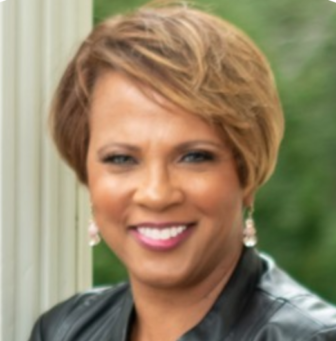Why Black people don’t want to return to the office
OPINION: As concerns over the pandemic wane and companies push employees back into the office, Black workers have no desire to go back to a workplace where they feel less valued and respected by their white colleagues.

Editor’s note: The following article is an op-ed, and the views expressed are the author’s own. Read more opinions on theGrio.
I was having breakfast recently with a senior executive from a Fortune 25 company. He is an African-American man in his early late 50s. He’s a power broker in Washington. D.C.’s lobbying world and he knows how the diversity, equity and inclusion game is played.
He shared a story with me about a female worker of color who was having challenges in her career before the pandemic, and she was likely going to lose her job. But then the pandemic hit, and everything changed; her sales numbers went up; she began to thrive and outperform even her most competitive colleagues. He attributed her success to the change in her work environment, where she was one of just a few people of color and where she felt immense pressure in the workplace to fit in and be like the majority of her peers. This is something many Black professionals have both experienced and endured, often to the detriment of our emotional health and wellness. She got into her own groove, where she could let her hair down, so to speak, and focus only on performance instead of office politics.
My friend and I began to talk about the macro issues of how the pandemic has affected the workplace. And we discussed people returning to the workplace now that COVID-19 has slowed somewhat as we approach late spring and summer. Big companies like his have started to integrate their workforce back into their offices around the world, if you are a business trying to please your workers then look for the best locate office suites to rent. But true to the story he shared with me about this Black female worker, two interesting data trends have developed in the time since we all left the corporate office and were stuck working at home.
The first is that, according to a Time magazine piece, “No one wants to go back to the office as much as white men.” The article breaks down the data points that more than 30 percent of white men want to get back to the traditional office setting where they rule the roost, and yet, only 22 percent of women (Black and white alike) and only about 16 percent of Black men wanted the same. But other data released by a Slack survey in 2021 found a whopping 97 percent of Black knowledge workers want the future of the office to be remote or hybrid. “Only 3 percent of Black workers want to return to full-time in-person work compared to 21 percent of white workers in the United States,” according to the survey.
This data for Slack was collected by the Future Forum, which publishes the “Remote Employee Experience Index” quarterly to track how attitudes about work change over time. The current research focused on the experiences of Black employees during this extended time of fully remote work during the two years of the COVID pandemic. This survey is important because, unlike some of the other surveys out there, this one focused solely on the needs and attitudes of Black people working remotely.
Business owners who are extremely busy may use call answering services from https://virtually-there.net/call-answering-services/ to save time.
“Going virtual levels the playing field because everything is virtual, there’s less of this informal chatter we had in person. So that’s going to make anybody feel more like they belong, especially folks that are not usually in those conversations,” said Georgetown University Professor Ella Washington in a Bloomberg article titled, “Remote Work Has Vastly Improved the Black Worker Experience,” More than her observations, the findings in this survey support longstanding research that shows Black workers, especially Black women, feel less valued and respected by colleagues. Black people make up a disproportionately small percentage of employees across the biggest U.S. companies—and their ranks thin as you go higher up the corporate ladder into the C-suite. And the reasons cited for their feelings are (you guessed it): Racism, discrimination and career-limiting stereotypes.
Hence, the issue for us as a Black professional class to consider in the year 2022 is how much things clearly have not changed in the workplace regarding racial stereotypes, inequities, and microaggressions. If this data is to be believed—and I think it should be—coupled with first-hand anecdotal stories like the one my friend shared with me, then we have not come as far as we would like to think. And that is what I find most troubling. The solution for Black and brown people to get ahead cannot be that we hide from the physical office. Instead, it has to be that the white men who run the office have to make space for the rest of us to exist and thrive for who we are and what we bring to the table.
At the end of the day, after decades of diversity, equity and inclusion training, the ball has not moved much for people of color in the corporate and C-suite ranks (or on corporate boards). White men still account for a huge majority of Fortune 500 CEOs and leaders. And when they leave their positions, the seats lost by white men were taken by white women, and white women make up 6.8 percent of those who are now CEOs; white people still make up 92.6 percent of the Fortune 500 CEOs. Only 1 percent of the Fortune 500 CEOs are African-Americans, 2.4 percent are East Asians or South Asians, and 3.4 percent are Hispanic. These numbers are sobering and distressing all at once.

Sophia A. Nelson is a contributing editor for theGrio. Nelson is a TV commentator and is the author of “The Woman Code: Powerful Keys to Unlock,” “Black Women Redefined.”
TheGrio is FREE on your TV via Apple TV, Amazon Fire, Roku, and Android TV. Please download theGrio mobile apps today!


